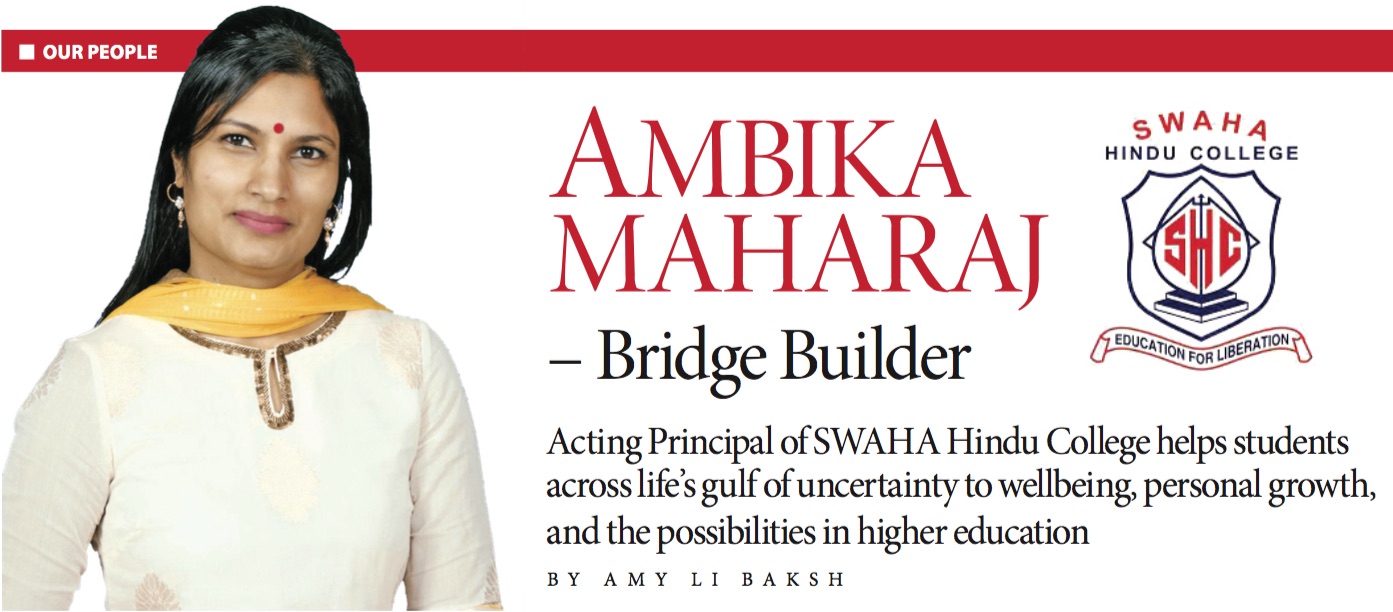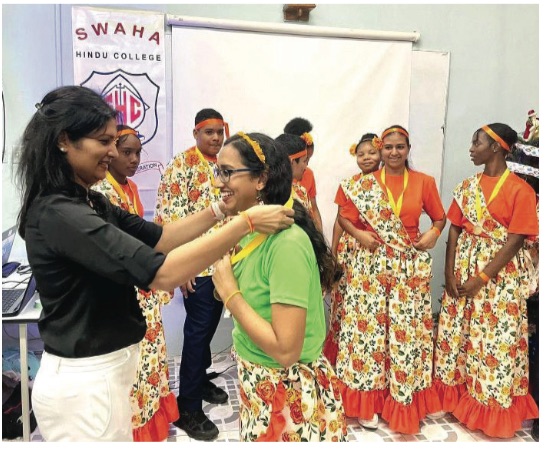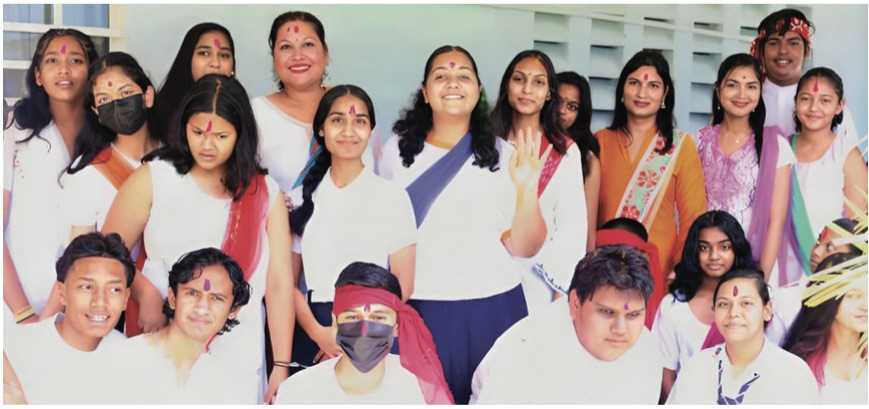
When Ambika Maharaj walked into The UWI to begin her BSc in Biology in 2000, she had no idea that her academic journey would take her across a wide swathe of disciplines and eventually lead her to a teaching role at SWAHA Hindu College, where she is currently acting as Principal.
“Following [the BSc in Biology], I did my Diploma in Education, and also completed my Master’s in Education in 2012,” says Maharaj. In between learning about science and education, she also found time to pursue other interests on campus, like photography and yoga.
Now, this well-rounded background is informing her approach as an educator at the college, which provides a more holistic approach to helping students grow through academia and all facets of life.
“The experiences at UWI were also defining moments for me,” she says. She draws on her experiences as a tertiary student to now help her secondary level students “create a bridge” between what classes look like at the current level, and what they can expect from further education. But for her, it wasn’t all about what happened in the classroom.
“It wasn’t just about the content delivery,” says Maharaj. She embraced the full experience. “I remember I would have done… even yoga, although I was seven or eight months pregnant,” she says with a laugh.
Even that would become relevant while she was teaching at SWAHA, where students are encouraged to practice meditation and yoga as part of the school’s push towards imparting health and wellbeing habits to them.
Although her background was initially in biology, Maharaj began her teaching journey teaching mathematics and Hindi.
“After I finished my degree, that’s when I started my teaching profession, in 2003,” she says. “When the opportunity presented itself for the diploma in education, I jumped at it.” She is hopeful that she can also inspire her students to explore higher education, even if where they start is not where they may end up.
SWAHA Hindu College itself has had a unique journey. When the school opened its doors in 2001, its 90 students were being housed at the Tulsi Manas Mandir’s compound in Sangre Grande. The school would be based there for the next eight years before construction on the current compound was completed.

By then, Maharaj was a fixture, and in addition to teaching, she also encouraged a relationship with The UWI so that students could learn more about what options are open to them going forward.
“Over the years, we have been building on this relationship [with The UWI],” she says. “Our school initially did not start off offering Form 6 CAPE studies. But once we began that programme, we realised that it wasn’t just about creating opportunities for the Form 5s, but also for career guidance – that transition from secondary to tertiary education.”
By 2010, they had made the connection to UWI and were engaged in finding ways to help students learn about life on campus. From as early as Form 3, students are able to attend campus tours organised by UWI St Augustine, where they are able to explore and learn about the different faculties, programmes and facilities the campus has to offer.

Ms Maharaj with students: “Children may feel self-conscious, or demotivated when they feel that they don’t know what to do with their life afterwards. But we reassure them, because there’s a process in transitioning and going along the journey. You don’t always have to know.”
“UWI started outreach through our school’s guidance office to see how they could give support in creating an awareness in our children on the programmes they offer and the application process. Within the last five/six years, that relationship has strengthened,” says Maharaj.
By giving their students such early access to see what university life can be like, Maharaj hopes that they will have more time to figure out where their own journeys might take them.
“They have to reflect on their interests, their ambitions, their abilities, and their strengths, to start planning their careers,” she says. “What we hope to achieve is that by feeding them this information, they can become reflective on their own personal growth.”
At such a young age, the process of figuring out what you want to do can be daunting. But for Maharaj, it is important to let them know that these feelings are perfectly normal, and that there is a support system in place for them.
“That’s a common experience,” she says. “Children may feel self-conscious, or demotivated when they feel that they don’t know what to do with their life afterwards. But we reassure them, because there’s a process in transitioning and going along the journey. You don’t always have to know.”
As someone whose journey has taken many different pathways, she hopes that students will allow themselves to explore all the possibilities and see what path really suits them on their own journeys.